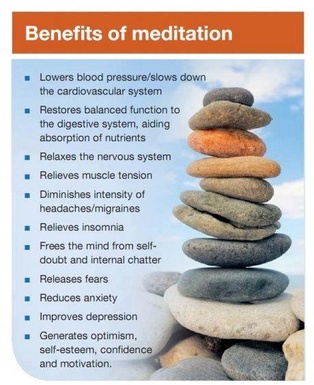|
2/19/2018 0 Comments Caregiving and the Pantyhose Principle: Asking for Help When You Can't Do It AlonePlease enjoy this excerpt from my book, Sanity Savers: For Caregivers at the End of Their Rope. This is the humorous story of the Pantyhose Principle: asking for help when you truly need it. Once upon a time, in a galaxy far, far away, there lived a young maid who cut her thumb doing something too stupid to mention here, and had to have microsurgery to reattach the nerve, requiring her right (primary) arm to be in a cast from fingertips up past the elbow for weeks. This was an amazingly annoying daily trial, causing the young maid endless aggravation and helplessness in doing even the basic activities of daily living -- particularly personal grooming. All the things one takes completely for granted, such as brushing teeth, getting dressed, showering and blow-drying hair became monumental challenges, exercises in logistics and planning. Now, picture this young maid trying to put on a pair of pantyhose with her left hand only; never mind why! It seemed necessary at the time. See her rolling around on the bed, breaking into a sweat and uttering some unladylike words with the supreme effort. See her husband rolling on the floor laughing as he watched. Of course, this only fueled the young maid’s fierce determination to do this silly task herself! Imagine her chagrin to have to admit defeat, swallow her pride, what little was left, and humbly ask for help before he lost consciousness from laughing too hard. Alas, finally, with his help I, er, the young maid was wearing the pantyhose in the right places. 'Twas a very tough, humiliating lesson. Ergo, the wisdom of the Pantyhose Principle emerged. This is a true story and reflects in a humorous way the challenges one can face as a caregiver, too. The lesson here is to just stop struggling so hard and ask for help. Simple, but NOT easy! Most caregivers start out feeling they must handle everything on their own and may find it difficult to reach out for help, but I hope you will remember the Pantyhose Principle if you are at a decision point. To avoid burnout, and provide better care, (plus keep your sanity safely intact) be attuned to when you are reaching a point of no return and ask for help. Are you at the end of your caregiving rope? You can tie a knot and hang out there, swing back and forth, or learn how to make a hammock of support for yourself and your care receiver. Sanity Savers is a new e-book to support caregivers with practical tips, gentle self-care and self-nurturing techniques and a healthy dose of humor, to make life less of a struggle and more a loving learning experience. Learn how to live with high-level wellness and practice safe sanity, starting now...
0 Comments
9/21/2015 Today is World Alzheimer's Day - remember those who forget and how to avoid becoming one of themI just read an article published in The Guardian, titled "One Third of People Born in 2015 Will Develop Dementia" and I felt a shiver go through me - a mix of disbelief, dread and then a goodly portion of righteous anger. I think every single human with a beating heart who looks at the statistics, those cold, easy to ignore numbers, and applies them to the babies being born now can't help but cry out that we ALL need to do more to address this health crisis. There is a virtual tsunami of dementia coming if we don't find ways to stop it. It will swamp our healthcare system and there will be no where to escape it.
Research is, of course, necessary, and finally receiving some significant attention. But we can do more than that. Those who are children or caregivers of parents/elders with dementia know personally the devastating consequences that it can bring -- emotional, financial, in family relationships, in health of the caregiver. So, that multiplies the shivers by quite an exponential factor. The truth is, there is almost NO one who is untouched by Alzheimer's in some way: whether it be a parent or grandparent, spouse, aunt or uncle, cousin or friend who is losing their personality and memory in excruciating pieces. Julianne Moore recently put a spotlight on the early-onset form of Alzheimer's in her award-winning performance in the film "Still Alice". And there are various groups vying for funds to support the cause in various ways. But I want to talk about what is within our power, each of us, as individuals, to defeat this disease. There's actually quite a lot that we CAN do, aside from shivering in disbelief. Here are some of the most important, scientifically supported ways you can reduce your own risk of developing Alzheimer's disease:
I'm going to stop here, though I could go on at length. The information is here, on this website and many others. I really implore you all to take your power back and act on that which you CAN control. Type II diabetes is at epidemic proportions, and this is something we can treat and reverse. So today, in honor of World Alzheimer's Day, won't you make a commitment to your own health and happiness by taking some steps to avoid Alzheimer's yourself? Do it for your own benefit and also for those who love and depend on you. Do it for your children to set a good, healthy example for them so they don't become one of the three people who will develop dementia. Whatever reason inspires or motivates you, just do it! As a caregiver educator, yoga student and teacher, I was intrigued by a UCLA research study last month. It concluded that a simple, low-cost yoga program can enhance coping and quality of life for caregivers. ~Angela Lunde, author of the Mayo Clinic Alzheimer's Blog I was really delighted to see that Angela Lunde, who writes an excellent Alzheimer's blog for caregivers at the Mayo Clinic endorsed a study that I've known about for quite some time. In fact, I wrote a blog post about it in March of 2012, which I am re-posting here in its entirety, since it still very much applies:
Stress, Meditation and Self-Help, Oh My! 03/14/2012 I just posted a link on the resource page for a new study at UCLA Semel Institute for Neuroscience and Human Behavior which had very promising results on a small group of caregivers. They showed marked improvements in both cognitive function and lower levels of depression after using Kirtan Kriya yoga meditation for a 12-minute daily session over an 8 week period. The control group used only soft, relaxing music, without the chanting meditation, and showed significantly less of a result. This is pretty amazing that it's possible to have a strong positive impact in 12 minutes a day with something that is basically free and easy to do. I'm intrigued by this, since I have been a student of yoga and meditation for many years. Yet, while I was in the midst of the worst stress of the caregiving role, I strangely abandoned those precious tools which would have helped to keep me in balance. Why? Self-sabotage? Perhaps. Burnout? Quite likely. When you find yourself in a prolonged, stressful situation the choices you make may not be rational because of the combined effects of fatigue, depression, ill health, frustration and guilt. The toxic mix of emotions can undermine even the strongest psyche, wearing it down like flowing water wears rock over time. Think, Grand Canyon, here. Caregiving stress is very similar in that it happens gradually, over a period of time, and you might not notice that your coping skills are deteriorating -- or, worse, you might notice and still not be able to make a good decision to rectify the situation. It's that sense of powerlessness, helplessness in the face of the situation, that is so significant and the point at which this entire website/blog is directed. If you find yourself in that "hanging-on-at-the-end-of-your-rope" place, and seriously considering letting go as an option, this lifeline is for YOU! I am putting together a series of short video meditations just for caregivers, so that you will have some guidance to do your daily 12-minute work toward finding balance, calm, and even your own inner peace again! Stay tuned. ********************************************************************** Back to the present, I realize that I never completed the video meditations for caregivers, and so there is no time like this moment to get that done. I hope to get my own version of the Kirtan Kriya posted shortly and will give you the link here on the blog. I purchased a copy from the Alzheimer's Research and Prevention site and have used it, but to my musician's ears, it has some definite flaws (yes, I am getting over my perfectionism. Just give me another decade or two and I should have it mastered). I also purchased their Alzheimer's Prevention Toolkit, which introduces the 4 Pillars of Alzheimer's Prevention(TM) which focuses on diet and brain-specific nutrients, exercise for mind & body, stress management and spiritual/psychological well-being. There is a very thorough up-to-date white paper available for download at the site below: For more information or to purchase, go to www.AlzheimersPrevention.org or email them at [email protected] Link for white paper: http://alzheimersprevention.org/downloadables/Yoga_and_Medical_Meditationtm.pdf I am simply amazed that this type of yoga meditation can produce verifiable results in only 12-minutes a day over an 8-week period. I think you will find the white paper quite enlightening in terms of current research. The information presented there is well-documented. These practices are something that virtually anyone can do, and as Angela Lunde points out, very low cost. They may pay very high dividends indeed if they can prevent or significantly postpone Alzheimer's Disease or help to improve cognitive skills. Frankly, I see no downside in trying them, if you feel the motivation. The possible benefit is life-changing.  I have written often of the benefits of meditation, particularly when combined with music as a guided meditation experience. Now there is increasing evidence from mainstream medical research of what has been understood for thousands of years by wise teachers of many traditions: meditation is great for people! The truly excellent thing about meditation is that anyone can do it, pretty much anywhere. It is easy, free (or very inexpensive if you choose to buy CDs or download guided versions), is proven as effective as pharmaceutical aids in reducing depression and stress, and has no side effects other than an increased sense of well-being and peacefulness. Click here to see the research done at Johns Hopkins investigating meditation as anti-depressant. What's not to love about that? The Mayo Clinic also published a newsletter article titled "Meditation: A simple, fast way to reduce stress" which gives an great overview of the subject . Various forms of meditation have been taught, mostly in eastern cultures, and the practice has been growing by leaps and bounds in the west over the past thirty years or so. There have been a number of pioneeers in bringing the practice of mindfulness-based stress reduction (MSBR) to the west, including Jon Kabat-Zinn who founded the Stress Reduction Clinic and Center for Mindfulness in Medicine, Health Care, and Society at the University of Massachusetts Medical School. His clinic was featured on the public television series Healing and the Mind with Bill Moyers in 1993. Meditation has such incredible benefits that I believe everyone can find some help by practicing it. In my own experience as a caregiver, meditation and music, combined with fervent and frequent prayer, saved my sanity when it was hanging by a thread. I find it compelling that the list of benefits meditation offers so exactly corresponds to symptoms many (or most) caregivers experience. The only mystery to me is why more caregivers don't use this incredible tool for balance and strength. Which is why I am making it my mission to get this information out to those who need it through this website & blog, by writing, speaking, teaching, and otherwise promoting it. How often is there a perfect solution to so many of our everyday stresses just waiting for us to sit down and get quiet long enough to find its gifts? If you'd like to explore the ideas and resources for meditation, please visit my Meditation and Music page on this site and also take a look at the ideas for Self-care and Caregiver Resource Store. I will also be publishing a book which further details resources and tools for caregivers: Sanity Savers for Caregivers at the End of Their Rope. You can add your name for an announcement of publication, which is targeted for March 2014. If you would like to read a chapter from the book about the uses of music and meditation, click here. I encourage you to explore the idea of various forms of meditation and find what appeals to you personally. In my 17 years of caregiving, music and meditation were the brightest jewels in the caregiver crown. Try it out. You have nothing to lose and so very much to gain! "There are four kinds of people in this world: those who have been caregivers, those who currently are caregivers, those who will be caregivers, and those who will need caregivers."  No matter which of the above four categories outlined by former First Lady Rosalynn Carter you may fall into, there is little doubt that your life has been affected by Alzheimer's -- either through a family member, friend or spouse. I won't bombard you with statistics, since they are all over the media airwaves, thankfully so! But I want to point out the there are over 65 million family caregivers in the US alone, mostly women, struggling along as the unsung heroes or sheroes, as the case may be, who deal with this disease or others, daily. I want to let you know that they need your help. Yes, I'm talking to YOU! This is not a disease which will allow cheering from the sidelines. You're going to have to get down and dirty, and maybe take a few hard knocks for the team and almost definitely get out of your comfort zone. If you know anyone who is dealing with Alzheimer's, for heaven's sake, help them out! Here are some things you can do: 1. Give them a huge hug and a warm, sincere "thank you" for their love and care. Let them know you acknowledge how tough it can be. It will make both of you feel better. 2. Offer practical help: a couple hours of respite care so they can go to a movie or shopping or take a nap. Do their laundry at your house and deliver it clean and folded. Take their children out for an afternoon of fun at the park or zoo to give those "sandwiched" between elder care and child care a break on one end of the caregiving spectrum. Find information about resources available in your local area for support, respite, help and give them to the caregiver with encouragement to help them follow through. 3. Take a walk to end Alzheimer's on Saturday, October 19, when the Alzheimer's Association is sponsoring a national fund-raising event. Click on the Alzheimer's Association link above to sign up. Get your company involved in matching donations raised (if you work for a company so inclined). 4. Help start a Memory Cafe in your community. Here's a "Toolkit" guide for this very worthwhile project and more information about how successful they are and how easy it is to bring better quality of life to those with dementia. There are currently about 80 Memory Cafes around the US, mostly grassroots local efforts, and so very helpful to caregivers and those with dementia. The concept is really taking off in the UK, with excellent support from the government. Here, unfortunately, we have to do it ourselves. 5. Be an advocate for creating dementia-friendly communities, so that caregivers can take their loved ones out to a restaurant, shop, church, or other public event without feeling the terrible stigma that tends to pervade uninformed environments. It isn't that people aren't willing to be dementia-friendly. They simply don't know how. Educate yourself, then educate others. See the excellent resource "Aging, Dementia, and the Faith Community: Continuing the Journey of Friendship" by John T. McFadden, M.Div., Chaplain at Appleton Health Care Center in Appleton, WI) 6. Practice the Mosquito Principle: "If you think you're too small to be effective, you have never been in bed with a mosquito." So, go ahead and be annoying to the decision-makers who can help to fund the end of Alzheimer's. Bother everyone you can think of and be very persistent in your efforts to help caregivers at the end of their rope, dealing with Alzheimer's. You CAN make a difference. Practice being mosquito-like. It can actually be fun, once you get the buzz, er, whine of it! 7. Introduce folks to this website which has a depth of resources, links, tips, advice and sanity-saving humor to help caregivers maintain their own well-being. There are helpful ideas about using music, meditation, aromatherapy, self-care, inspiring books, personalized playlists on iPods with www.musicandmemory.org, and so much more at www.caregiverwellness.biz. 8. Lastly, practice outrageous acts of kindness and caring for the people you love, and maybe for strangers, too. Use the Pay it Forward concept. Reach out and offer your support in big and small ways. Be vocal, be an activist, be a pain in the patooti, but be involved. If we are not, who will be? |
About Karen
Karen is a compassionate, enthusiastic student of life, who cared for her mother for 17 years. She brings her insights, compassion, experience and desire to share knowledge and healing to this ongoing conversation with others on the caregiving path. If you are caring for a parent, spouse, friend or other loved one this site offers sanity-saving tips, open-hearted self-care ideas, and an open forum for discussion, connection and sharing resources for the journey. Archives
October 2021
CategoriesAll Acceptance Aging Together Alan Cohen Alive Inside Movie Alzheimer's Alzheimer's Prevention A Mind Of Your Own Anxiety Aromatherapy Audio Therapy For PTSD Austin Air Hepa Filter Autism Back Care Video Beginner's Mind Being Present Blessing For Caregivers Books Brain Insulin Butterfly Story Calm Calm.com App Care For Veterans Caregiver Advocate Caregiver Coalition Caregiver Comfort Kit Caregiver Guilt Caregiver Retreat Caregiver's Serenity Prayer Caregiver Stress Caregiver Support Care Giving Caregiving Vulnerability Care In Hospital Caterpillar Into Butterflies Chamomile Tea Cindy Laverty Comedian Computers & Exercise Crisis Dan Cohen Deepak Chopra Delirium Depression Diabetes Disaster Preparedness Distractions Dr. Dharma Singh Khalsa Dr. Oliver Sacks Eden Alternative Eldershire Elizabeth Dole Foundation Emergency Planning Emergency Preparation Emerson End Of Caregiving Enough Already Escapism Essential Oils Food Safety Forgiveness Funny Stories Gaiam.com Gail Sheehy Gift Of Alzheimer Gift Of Healing Presence GMO Food Green House Project Gregory Fricchione Md Grief Guilt Happy Light Healing Holding Hands Home As Sanctuary Hope Hospital Caregiving Hospital Stay Humor Inspirational Reading Ipods For Nursing Homes Isolation Jacksonville James E. Miller John Denver Johns Hopkins Study John T. McFadden Jon Kabat-Zinn Kelly Brogan Kirtan Kriya Meditation Lao Tzu Laugh Laughter Lavender Loneliness Loss Of Purpose Love Love In The Nursing Home Maya Angelou Mayo Clinic Mayo Clinic Alzheimer's Blog MD Meditation Meditation Garden Melatonin Memory Memory Cafe Military Caregiver Mindfulness Meditation Mr. Bean Music Music & Alzheimer Music And Memory Neurological Research Noise Pollution Operation Family Caregiver Opportunity Overnight Respite Care Pandemic Passages In Caregiving Patience Paul Coelho Peace Post-traumatic Stress Disorder Power Of Love Prayer PTSD Quality Of Sleep Radical Contentment Relaxation Releasing Problems Renewal Research Respite Rewind Rodney Yee Rosalynn Carter Rosalynn Carter Institute For Caregiving Rowan Atkinson Sanctuary Sanity Self Care Serenity Silence Sleep Slowing Time Solutions Soothing Music Stress Stress Relief Sun Sunshine Support For Caregivers Tai Chi Thanksgiving The Care Company The Kiss Time Traumatic Brain Injury Travel With Alzheimer's Person Treat VA Caregivers Valentine's Day Verilux Veteran Farms Veterans Veteran Suicide Vitamin D Wayne W. Dyer Wellness Wendell Berry White Noise William H. Thomas Worry Yoga Yoga Video |



